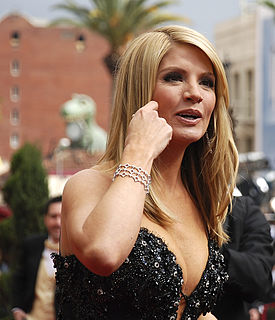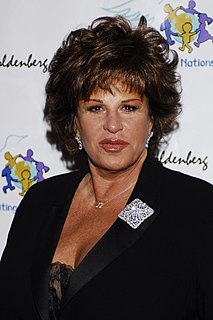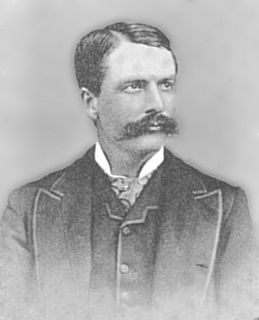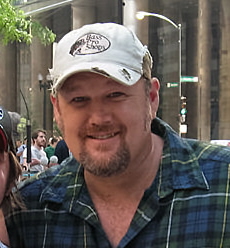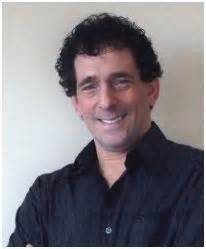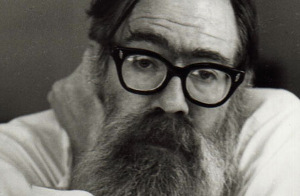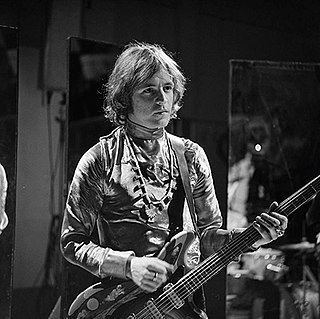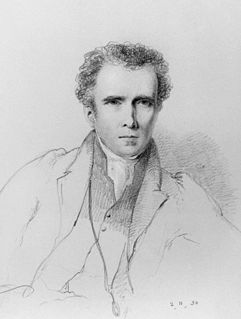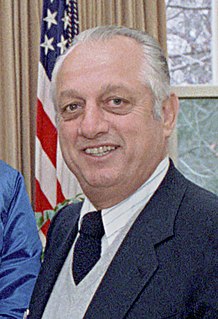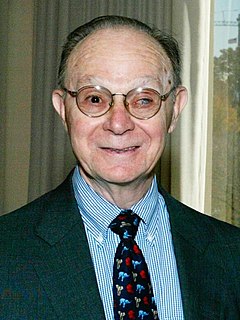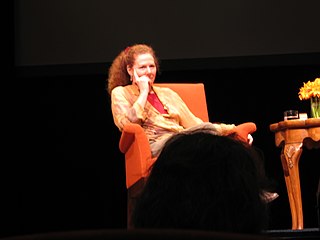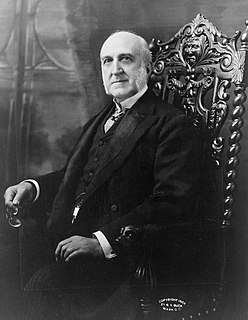Top 175 Milton Quotes & Sayings - Page 3
Explore popular Milton quotes.
Last updated on December 4, 2024.
People who are following their dreams inspire me. I train at this relatively new gym in West Hollywood called Training Mate. It's owned by a former Australian football player named Luke Milton. The classes are mostly taught by other Australians that are just like Luke: fit, funny, cute, and approachable. Now they're talking about opening another location. He will open another location and be successful because he's following his dream. People like him inspire me because they make me think I can do it too.
I'd seen all the great entertainers by the time I was 14 or 15. My mother was artistic. My father was a bookmaker, so he had access to all those nightclubs, and he was smitten by certain artists, and we would go see them. We'd see comics like Sid Caesar and Milton Berle - those kind of artists - many of whom I worked with later in my life.
It would be a wonderful experience to stand there in those enchanted surroundings and hear Shakespeare and Milton and Bunyan read from their noble works. And it might be that they would like to hear me read some of my things. No, it could never be; they would not care for me. They would not know me, they would not understand me, and they would say they had an engagement. But if I could only be there, and walk about and look, and listen, I should be satisfied and not make a noise. My life is fading to its close, and someday I shall know.
I call this the Fundamental Problem of Political Economy. How do we limit the power that idiots have over us? ... [Milton] Friedmans insight is that a market limits the power that others have over us; conversely, limiting the power that others have over us allows us to have markets. Friedman argued that no matter how wise the officials of government may be, market competition does a better job of protecting us from idiots.
But the more I read... after awhile... I begin to find they were all writing about the same thing, this same dull old here-today-gone-tomorrow scene... Shakespeare, Milton, Matthew Arnold, even Baudelaire, even this cat whoever he was that wrote Beowulf... the same scene for the same reasons and to the same end, whether it was Dante with his pit or Baudelaire with his pot... the same dull old scene...
The ultimate cause of the October Crisis was the ideological embrace of Milton Friedman's warped but still dominant view that "the only social responsibility of business is to make a profit for its shareholders," and until that socially and economically counterproductive - and empirically, legally and ethically inaccurate - view is corrected, we will continue to have the increasing and more intense crises of global capitalism that we have seen recur with ever greater frequency over the past forty years. Sadly but clearly, the lessons have still not been learned.
In the early 1970s, Milton Friedman argued that corporations should not be socially responsible because they had no mandate to be; they existed to make money, not to be charitable institutions. But in the economy of the 21st century, corporations cannot be socially responsible, if social responsibility is understood to mean sacrificing profits for the sake of some perceived social good. That's because competition has become so much more intense.
God, you Jews are truly exotic." Exotic? She should only know the Greenblatts. Or Mr. and Mrs. Milton Sharpstein, my father's friends. Or for that matter, my cousin Tovah. Exotic? I mean, they're nice, but hardly exotic with their endless bickering over the best way to combat indigestion or how far back to sit from the television set.
If you like poetry let it be first rate, Milton, Shakespeare, Thomson, Goldsmith Pope (if you will though I don't admire him), Scott, Byron, Campbell, Wordsworth and Southey. Now Ellen don't be startled at the names of Shakespeare, and Byron. Both these were great Men and their works are like themselves, You will know how to chuse the good and avoid the evil, the finestpassages are always the purest, the bad are invariably revolting you will never wish to read them over twice.
I was always a fan of the old-style comics. I loved vaudeville. I loved Milton Berle, Dick Shawn, Phyllis Diller, Don Rickles, Charlie Callas, all those guys. Hilarious. I love the Bing Crosby and Bob Hope movies, and Abbott & Costello. My television influences were 'Monty Python's Flying Circus,' 'Benny Hill,' and 'Hee Haw.'
Why, if 'tis dancing you would be, There's brisker pipes than poetry. Say, for what were hop-yards meant, Or why was Burton built on Trent? Oh many a peer of England brews Livelier liquor than the Muse, And malt does more than Milton can To justify God's ways to man. Ale, man, ale's the stuff to drink For fellows whom it hurts to think: Look into the pewter pot To see the world as the world's not.
His books were part of him. Each year of his life, it seemed, his books became more and more a part of him. This room, thirty by twenty feet, and the walls of shelves filled with books, had for him the murmuring of many voices. In the books of Herodotus, Tacitus, Rabelais, Thomas Browne, John Milton, and scores of others, he had found men of face and voice more real to him than many a man he had met for a smoke and a talk.
When I write what publishers call 'fantasy' I am writing in what I think is the most important tradition of fiction: starting with Homer and up through Shakespeare and Milton, the most important themes to tackle are those of the mythopoeic domain, tales of the body and mind seen through a temperament and a cosmos divorced from current reality so what is said can be more clear.
An institution is the lengthened shadow of one man; as, monachism of the Hermit Anthony, the Reformation of Luther, Quakerism of Fox, Methodism of Wesley, abolition of Clarkson. Scipio, Milton called "the height of Rome;" and all history resolves itself easily into the biography of a few stout and earnest persons. Let a man, then, know his worth, and keep things under his feet.
Once, I was coming back from school, and there was this guy who was eve-teasing me and my friend. I had a Milton water bottle that I flung it at his face. My dad told me if you are in a crowded place and a guy eve-teases, you should make noise. I did exactly that and got people on the road to beat up the guy.
I just think, realistically, there's a lot of room outside the Trump populist right and the Bernie-Sanders-Elizabeth-Warren populist left. There are a lot of us who believe in open trade, open borders, a dynamic forward-looking economy, not a nostalgic economy, but do want to provide a significant level of social service or sort of economic Milton Friedman foreign policy, Ronald Reagan domestic policy, Franklin Roosevelt. And there's a lot of room in the center.
English literature, from the days of the minstrels to the Lake Poets,--Chaucer and Spenser and Milton, and even Shakespeare, included,--breathes no quite fresh and, in this sense, wild strain. It is an essentially tame and civilized literature, reflecting Greece and Rome. Her wildness is a greenwood, her wild man a Robin Hood. There is plenty of genial love of Nature, but not so much of Nature herself. Her chronicles inform us when her wild animals, but not the wild man in her, became extinct.
Milton Erickson was a master at using experiential techniques to elicit strengths that were previously dormant. Mills and Crowley have masterfully captured essential elements of Erickson's work and applied it to therapy with children. Easy to read, meticulously referenced, and filled with inspiring case studies, Therapeutic Metaphors for Children and the Child Within has now been updated with important new findings, and it's essential reading for clinicians who work with children as well as for those who want to improve their use of therapeutic metaphor.
What a contrast between the stern and desolate poetry of Ossian, and that of Chaucer, and even of Shakespeare and Milton, much more of Dryden, and Pope, and Gray! Our summer of English poetry, like the Greek and Latin before it, seems well advanced towards its fall, and laden with the fruit and foliage of the season, with bright autumnal tints, but soon the winter will scatter its myriad clustering and shading leaves, and leave only a few desolate and fibrous boughs to sustain the snow and rime, and creak in the blasts of age.
It is a shallow criticism that would define poetry as confined to literary productions in rhyme and meter rhythm. The written poem is only poetry talking, and the statue, the picture, and the musical composition are poetry acting. Milton and Goethe, at their desks, were not more truly poets than Phidias with his chisel, Raphael at his easel, or deaf Beethoven bending over his piano, inventing and producing strains, which he himself could never hope to hear.
All the poets are indebted more or less to those who have gone before them; even Homer's originality has been questioned, and Virgil owes almost as much to Theocritus, in his Pastorals, as to Homer, in his Heroics; and if our own countryman, Milton, has soared above both Homer and Virgil, it is because he has stolen some feathers from their wings.
I would say that Mickey Mouse has a greater influence on the American public than Shakespeare, Milton, Dante, Rabelais, Shostakovitch, Lenin, and/or Van Gogh. Which says 'What?' about the American Public. Disneyland remains the central attraction of Southern California, but the graveyard remains our reality.
Milton on speed. I am going to need about a decade to think about that. That delay in syntax, the putting off of the click of the sentence into itself, is something that has always intrigued me. I love the emotional effect of it, and never want it to be merely a gesture. Sometimes I try it and it doesn't work, so I have to put the poem aside, and try again, more simply and more strange.
I do strongly feel that among the greatest pieces of luck for high achievement is ordeal. Certain great artists can make out without it, Titian and others, but mostly you need ordeal. My idea is this: the artist is extremely lucky who is presented with the worst possible ordeal which will not actually kill him. At that point, he's in business: Beethoven's deafness, Goya's deafness, Milton's blindness, that kind of thing.
If any issue should unite liberals and conservatives, anyone who cares about the integrity of human achievement or respect for human accomplishment, may we not all pledge to avoid the silly censoring that can lead to a codification of Orwell's Newspeak? Consider John Milton's reasons for why good arguments are often lost: 'For want of words, no doubt, or lack of breath!'
To estimate the value of Newton's discoveries, or the delight communicated by Shakespeare and Milton, by the price at which their works have sold, would be but a poor measure of the degree in which they have elevated and enchanted their country; nor would it be less grovelling and incongruous to estimate the benefit which the country has derived from the Revolution of 1688, by the pay of the soldiers, and all other payments concerned in effecting it.
I think people who basically do one thing like Eric Clapton is great. But I've always enjoyed playing different kinds of music and playing with different kinds of musicians because I find that really interesting, like learning and working with Kip Hanrahan. There's a great conga player called Milton Cardona and he taught me a lot of the nuances, he's a Santeria Priest and so he knows his onions as it were.
Maria Edgeworth grumbled against vandals who ruined immortal works by quoting the life out of them. "How far our literature may in future suffer from these blighting swarms, will best be conceived by a glance at what they have already withered and blasted of the favourite productions of our most popular poets." Shakespeare, Milton, and Dryden, scissored, patched, and frayed.
The flat tax I got on my first meeting with Margaret Thatcher, who I admired very much and who was a great admirer of Milton Friedman. I met her first when I had been prime minister I think for some months and so on, and when I told her what I am planning to do, she looked at me with these big eyes and said: "You are one brave young man." And then a little bit introduced me on the realities of the Western world on which I was not very well informed. But I didn't stop.
The greatest artists, saints, philosophers, and, until quite recent times, scientists... have all assumed that the New Testament promise of eternal life is valid.... I'd rather be wrong with Dante and Shakespeare and Milton, with Augustine of Hippo and Francis of Assisi, with Dr. Johnson, Blake, and Dostoevsky than right with Voltaire, Rousseau, the Huxleys, Herbert Spencer, H. G. Wells, and Bernard Shaw.
GUNPOWDER, n. An agency employed by civilized nations for the settlement of disputes which might become troublesome if left unadjusted. By most writers the invention of gunpowder is ascribed to the Chinese, but not upon very convincing evidence. Milton says it was invented by the devil to dispel angels with, and this opinion seems to derive some support from the scarcity of angels.
The slave will be free. Democracy in America will yet be a glorious reality; and when the top-stone of that temple of freedom which our fathers left unfinished shall be brought forth with shoutings and cries of grace unto it, when our now drooping Liberty lifts up her head and prospers, happy will he be who can say, with John Milton, "Among those who have something more than wished her welfare, I, too, have my charter and freehold of rejoicing to me and my heirs."
When I stand in a library where is all the recorded wit of the world, but none of the recording, a mere accumulated, and not trulycumulative treasure; where immortal works stand side by side with anthologies which did not survive their month, and cobweb and mildew have already spread from these to the binding of those; and happily I am reminded of what poetry is,--I perceive that Shakespeare and Milton did not foresee into what company they were to fall. Alas! that so soon the work of a true poet should be swept into such a dust-hole!
Where are Shakespeare's imagination, Bacon's learning, Galileo's dream? Where is the sweet fancy of Sidney, the airy spirit of Fletcher, and Milton's thought severe? Methinks such things should not die and dissipate, when a hair can live for centuries, and a brick of Egypt will last three thousand years. I am content to believe that the mind of man survives, somehow or other, his clay.
Oh, I have feelings for him, all right. I'd like to put him in the ground myself, believe me. Still, it would be wrong. Promise me." "Fine. I promise I won't kill him." He said it too easily. My eyes narrowed. "Promise me right here and now that you will also never cripple, maim, dismember, blind, torture, bleed, or otherwise inflict any injury to Danny Milton. Or otherwise stand by while someone else does as you watch." "Blimey, that's not fair!" he protested
I own that I am disposed to say grace upon twenty other occasions in the course of the day besides my dinner. I want a form for setting out upon a pleasant walk, for a moonlight ramble, for a friendly meeting, or a solved problem. Why have we none for books, these spiritual repasts-a grace before Milton-a grace before Shakespeare-a devotional exercise proper to be said before reading The Fairie Queene?
Raphael painted, Luther preached, Corneille wrote, and Milton sang; and through it all, for four hundred years, the dark captives wound to the sea amid the bleaching bones of the dead: for four hundred years the sharks followed the scurrying ships; for four hundred years America was strewn with the living and dying millions of a transplanted race; for four hundred years Ethiopia stretched forth her hands unto God.
I've been able to dine with presidents, with leaders of corporations, traveled for 14 years with (financier and philanthropist) Michael Milken, who has taught me so much about life. Hanging around with them, it's nothing I could have believed in grade school. I could be with all of them? Milton Berle, Don Rickles, Dean Martin ... this former third-string pitcher from the Norristown High baseball team and the son of an Italian immigrant? I really am in awe when I think that has happened to me. What a life.
To me this world is all one continued vision of fancy or imagination, and I feel flattered when I am told so. What is it sets Homer, Virgil and Milton in so high a rank of art? Why is the Bible more entertaining and instructive than any other book? Is it not because they are addressed to the imagination, which is spiritual sensation, and but immediately to the understanding or reason?
It is saying less than the truth to affirm that an excellent book (and the remark holds almost equally good of a Raphael as of a Milton) is like a well-chosen and well-tended fruit tree. Its fruits are not of one season only. With the due and natural intervals, we may recur to it year after year, and it will supply the same nourishment and the same gratification, if only we ourselves return to it with the same healthful appetite.
Milton Friedman had the grace and good sense to recognize that he wanted to talk to the general public. He wasn't going to just lecture to the people who happened to appear in his classroom in Chicago or on some lecture circuit. He went out to talk to the general public, believing that you had to convince a democratic nation to change its ways, and he succeeded to a considerable extent.
I do not know whether it is the view of the Court that a judge must be thick-skinned or just thick-headed, but nothing in my experience or observation confirms the idea that he is insensitive to publicity. Who does not prefer good to ill report of his work? And if fame a good public name is, as Milton said, the "last infirmity of noble mind", it is frequently the first infirmity of a mediocre one.
The slight, the facile and the merely self-glorifying tend to drop away over the centuries, and what we are left with is the bedrock: Homer and Milton, the Greek tragedian and Shakespeare, Chaucer and Cervantes and Swift, Dostoyevsky and Tolstoy and James and Conrad. Time does not make their voices fainter, on the contrary, it reinforces our sense of their truth-telling capacity.
Even philosophies who have denounced pseudosciences like psychoanalysis, have condoned pseudoscientific economic theories like neoclassical microeconomics. It is far safer and easier to criticize Freud and Jung than to criticize Milton Friedman and Friedrich Hayek, because the latter are backed by political movements whereas the former are not.
[Milton's] argument is (a) St. Augustine was wrong in thinking God's only purpose in giving Adam a female, instead of a male, companion, was copulation. For (b) there is a "peculiar comfort" in the society of man and woman "beside, (i.e. in addition to, apart from) the genial bed"; and (c) we know from Scripture that something analogous to "play" or "slackening the cords" occurs even in God. That is why the Song of Songs describes a thousand raptures...far on the hither side of carnal enjoyment.
If we claim heritage in Bacon, Shakespeare and Milton, we also acknowledge that it was for liberties guaranteed Englishmen by sacred charters our fathers triumphantly fought. While wisely rejecting throne and caste and privilege and an Established Church in their new-born state, they adopted the substance of English liberty and the body of English law.
We are befouling and destroying our own home, we are committing a slow but accelerating race suicide and life murder - planetary biocide. Now there is a mighty theme for a mighty book but a challenge to which no modern novelist or poet has yet responded. Where is our Melville, our Milton, our Thomas Mann when we need him most?
Milton Katselas said, "Who are you to look down your nose at Anna Magnani and Maureen Stapleton? Who do you think you are?" I was doing this kooky meditation at the time called inner-guide meditation, where you go into a cave and you have a guide, and you fly around. So I said to my inner guide, "Take me to the energy that's blocking me from accepting my casting" - because I understood it intellectually, but I didn't want to do it in my heart.
They took away what should have been my eyes (but I remembered Milton's Paradise). They took away what should have been my ears, (Beethoven came and wiped away my tears) They took away what should have been my tongue, (but I had talked with god when I was young) He would not let them take away my soul, possessing that I still possess the whole.
